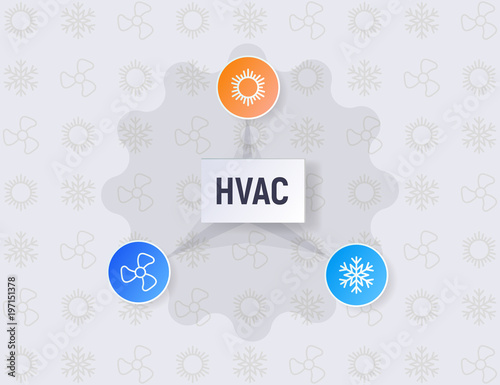In an era where sustainability and energy efficiency are paramount, numerous organizations seek environmentally friendly home heating solutions. One such option is the heatpump.
A heatpump extracts the heat in its environments and pumps it into your home, resulting in among one of the most reliable green main heating systems around. This procedure also produces no greenhouse gas emissions, making it an extremely sustainable technology.
Energy Performance
Heat pumps are very energy effective and need little upkeep. They use less electricity than various other heating unit and are by far the most eco-friendly. They function well with roof solar and can commonly spend for themselves in energy cost savings alone.
They can additionally give air conditioning, which is fantastic for garage workshops, attic room hangouts and bonus offer spaces, and home enhancements without extending the existing ductwork. They can even be made use of for retrofits in existing homes with hydronic (water-based) distribution systems such as low temperature radiators or radiant floorings.
Look for designs with SEER and HSPF scores that satisfy or go beyond Canada's minimum requirements, as well as the requirements in your area. Greater rankings indicate higher effectiveness, which conserves you money in the future and decreases your carbon impact. You might even get rebates and motivations! The best units are those with a ground heat exchanger for included performance. These units can soak up thermal power from the ground throughout the winter and essence it in the summer season.
Decreased Greenhouse Gas Emissions
Heatpump work on electricity and essentially move heat from the air, also when it's cold exterior. They have the ability to draw out the free heat caught in air particles and relocate them inside, minimizing humidity while doing so.
Contrasted to gas heaters, modern-day heat pumps make use of less than one kilowatt of electricity per kilowatt of heating power they generate. This makes them one of the most power effective home heating alternative available with a POLICE (Coefficient of Performance) of 4 or even more. By reducing https://zandertgsdl.blogoscience.com/35404131/the-clear-cut-overview-to-choosing-the-right-size-heat-pump-for-your-home for nonrenewable fuel sources, heatpump help reduce greenhouse gas exhausts and reduce other major air toxins.
Structure decarbonization is a global necessary, and the heating and cooling sector is a vital vehicle driver of that process. Whether it's real estate investors making net no dedications, plan manufacturers setting exhausts limits, or tenants requiring greener rooms, electrical heatpump are being identified as an important option. They are an economical way to reduce carbon exhausts by removing the demand for nonrenewable fuel sources in structures.
ventilation maintenance christchurch can be used in lots of kinds of homes and structures-- with or without air ducts. They deal with hot-water radiators, air-conditioning and programmable thermostats. They can replace furnaces or be mounted in brand-new residences. They can work on photovoltaic panels, geothermal systems and even area heating sources like wastewater.
They're excellent at providing more heat per energy system. For example, an air-source heatpump produces up to three or more heating devices from each power unit it eats.
Getting the most from your heat pump will certainly depend on your environment area and top quality of insulation. Try to find versions with power STAR scores and compare their SEER or HSPF specs. In warmer environments, concentrate on SEER; in colder regions, think about a system with a higher HSPF score. On top of that, invest in air securing and insulation to minimize the load on your heat pump. That will certainly improve power efficiency and assist you reach your Web Zero objectives quicker.
Biomass Boilers
Biomass boilers use timber pellets, chips or logs to produce warm and hot water. https://www.ktvq.com/news/local-news/billings-cold-snap-has-heater-techs-scrambling are an excellent option for off-grid properties or those who want to leave the gas grid.
As a standalone heating unit, biomass can provide adequate energy to keep your home warm throughout the year without the typical warmth drop off of other sustainable innovations. They can additionally be used in conjunction with photovoltaic panels to maximise savings and gain from RHI settlements.
A drawback of these systems is the upfront cost and normal fuel shipments. Commonly, pellets will need to be blown right into a gas store using a vacuum system or they can be manually fed right into the central heating boiler via a receptacle. Logs are typically self-sourced from neighboring forest or purchased in bulk. In addition to this, they require hands-on loading and may require cleansing regularly.
